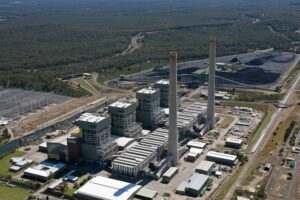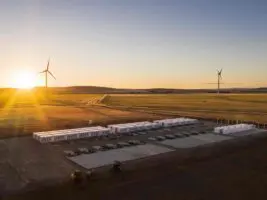Hungary has become the seventh EU country to plan a coal phase-out by 2025, and the sixth European country to bring forward its coal phase-out plan after announcing it will bring forward the closure of its last coal generator and partially replace it with a solar farm.
Hungary’s Secretary of State for the Development of Circular Economy, Energy and Climate Policy, Attila Steiner, announced at a meeting of the Powering Past Coal Alliance last week that Hungary would bring forward its coal phase-out plan by five years, from 2030 to 2025.
The Hungarian President, János Áder, originally announced at the United Nations Climate Action Summit in New York in 2019 that Hungary would phase out all coal-fired electricity generation by 2030, where he announced plans to increase its solar power capacity ten times by 2030.
Steiner said Hungary’s new “plan is to reach 90% carbon neutral electricity generation by 2030” which will not only include an expansion of the country’s nuclear capacity, but will also entail expanding solar power capacity to 6GW.
Making way for Hungary’s coal phase-out is the country’s 884MW Matra coal power plant, the last remaining coal-fired power plant.
Coal has not been an integral part of Hungary’s energy mix for some time – though the country still relies heavily on oil and gas for energy production, with each accounting for around a third of the country’s total energy supply.
Nuclear power accounts for about half of all electricity generation, gas is the country’s second largest supplier of electricity, followed by all renewable energy sources and coal, both accounting for around 10% each.
“The Hungarian government’s decision to halve the time it will take to exit coal tells you everything you need to know about the state of Europe’s collapsing coal industry,” said Kathrin Gutmann, Europe Beyond Coal campaign director.
“Half of Europe’s coal countries are either already coal free or have a UN Paris climate agreement aligned, pre-2030 coal phase out plan, and it’s quickly becoming a trend to fast track coal exits once announced.
“It shows that when governments actually stop and look at the cold hard economic and political realities of coal, not only do they want to get rid of it – they decide to do so as quickly as possible.”
Current plans for the Matra site are to build a 200MW solar plant, as well as a 500MW gas plant.
“The government’s announcement fulfils the minimum criteria of our demands: we got a clear commitment to phase out coal with the shutting down of the last remaining coal power station in Hungary by 2025, and no further lifetime extension,” said Andras Perger, Climate and Energy Campaigner at Greenpeace CEE.
“However, this move is linked to the commissioning of a new fossil gas power station, which is unacceptable. You cannot fight climate change with new fossil power stations.”








